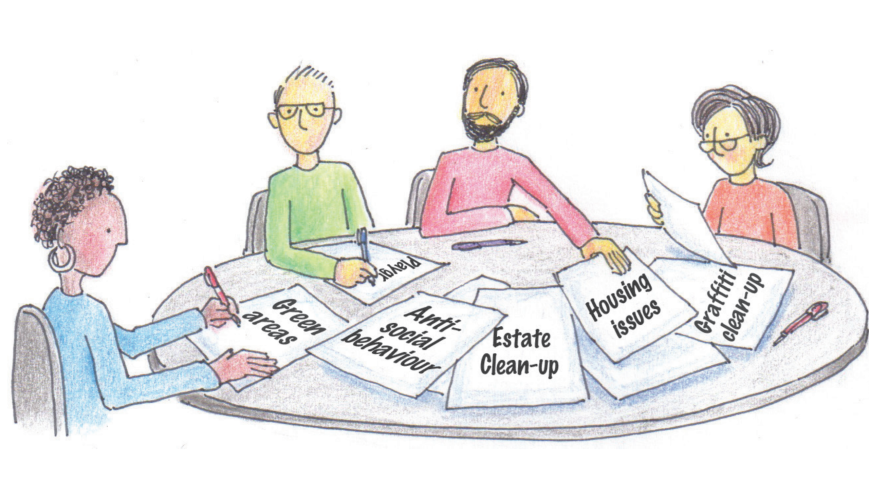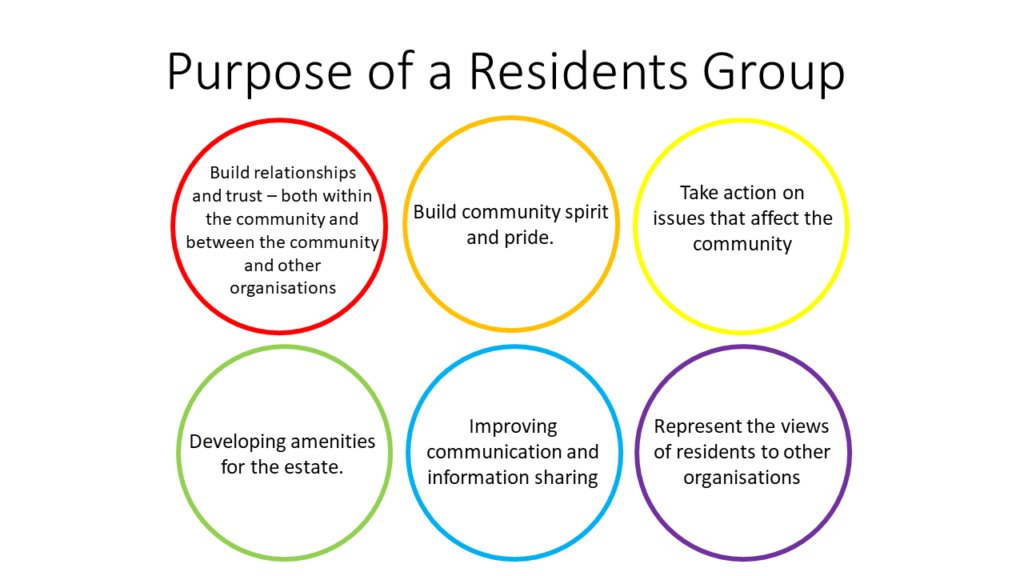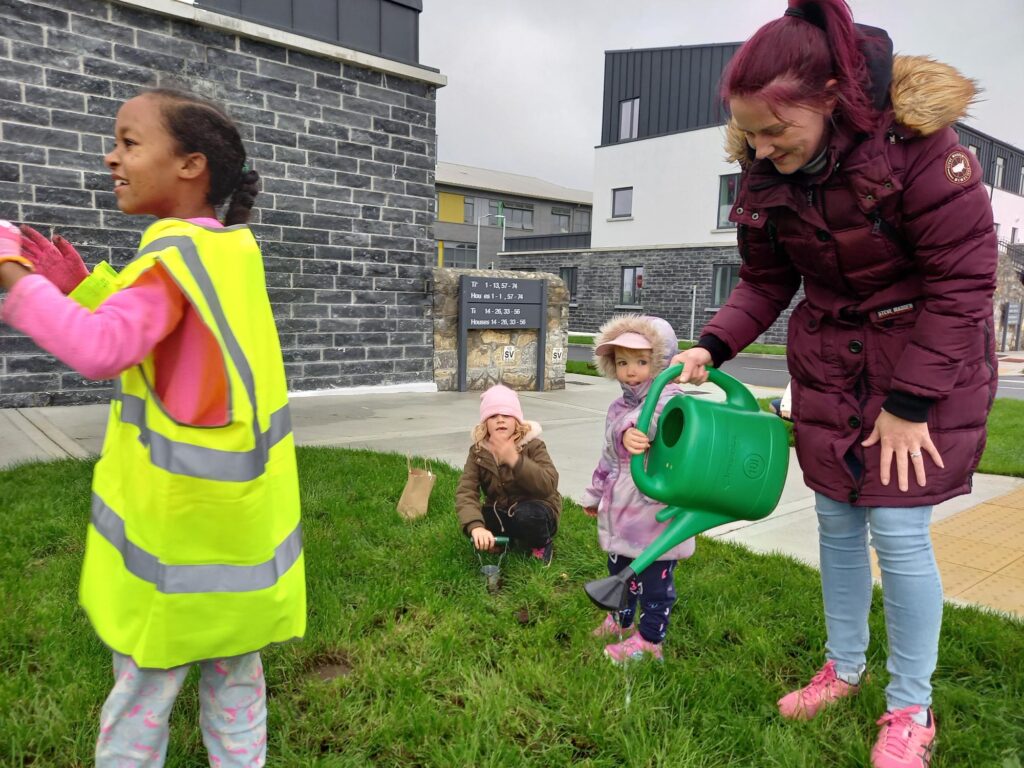Residents’ Group Information

A Residents Group is a group of local people living in a housing estate or apartment complex in a particular area that come together to promote and enhance the living environment of the area and to ensure that the area is well represented when dealing with local and statutory bodies.
A Residents Group (also known as an Residents Association/ Committee) can be made up of residents, tenants and/or homeowners who represent the interests of everyone living in an area. They aim to represent the views of all residents in their area to help make their neighbourhood and community a better place to live.
Why start a Residents’ group?
- To work together to improve facilities or services, e.g. a better repair service, improved road safety, improved local security etc.
- To increase the sense of belonging to a community.
- To organise outings and other social events and build community spirit.
- To link in with other residents’ groups in the area and work together on common issues.
- For residents to have a representative body to approach the Local Authority, TORC Sustainable Housing, or other agencies about issues of interest or concern.
What are the first steps for setting up a Residents’ Group?
After all residents have been allocated their homes on each TORC scheme, the Tenant Engagement Officer will organise the first community meeting and invites will be sent out to residents on the scheme who have signed the Tenant Engagement Consent Form. The first community meeting is held on the Scheme with the TORC tent and is a good opportunity to gauge the interest in setting up a Resident’s Group. The HSCO will also be in attendance to provide updates on the scheme and address any housing concerns. Following the first community meeting with the Tenant Engagement Officer a group of volunteers are invited to come forward to form the Residents’ Group.
The next steps are to:
- Decide a group name.
- Agree the aims and objectives of the group.
- Elect the Resident Association’s Committee- the Chairperson, Secretary, Treasurer and Minute taker role
- Agree a constitution for the group – the TEO can provide a template for the constitution.
- Agree and sign a code of conduct – the TEO can help with this.
- Set up a residents’ group bank account – the TEO can provide support with this.
- Register the group with the Public Participation Network.
- Develop an action plan and agree when the actions in it should happen.
- Keep a record of all the committee’s meetings. This record is called the ‘minutes’.
- Agree times and dates for future meetings.
- Set an agenda for your next meeting.
What are the benefits of a Residents’ Group?
Creating and developing your community.
Meeting your neighbours socially.
Achievement and pride in your estate.
Providing services and activities for your community.
Gaining new skills and knowledge.
Sharing skills and knowledge.
Achieving more as a group for the wellbeing of the estate.
Linking into the wider community.
The main function of a Residents’ Group is to;
- Hold regular meetings
- Keep the community informed of issues and new initiatives taking place in the area
- Discuss local issues
- Make decisions
- Represent the views and needs of the local community
What is a constitution and what is it for?
A constitution is important to a residents’ group because it is:
- A written understanding of the group’s purpose and keeps the committee on the right track.
- It avoids members having different ideas about the purpose of the group.
- It will serve as a reference for how the group operates and help to resolve problems in times of controversy.
- Potential funders will want to see that your group is accountable, transparent and fair in how it operates and makes decisions. Your constitution demonstrates this.
In general terms the constitution will include the following information:
-Name of the group/association
-Aims and objectives of your organisation (why the group exists and what it wants to achieve)
-Powers (remit of the group)
-Membership (who can be members of the group/organisation)
-Management Committee (representation)
-Officers (roles and responsibilities and voting rights)
-Meetings (frequency, duration etc.)
-The AGM
-Quorum for meetings
-Finance (process for financial management)
-Dissolution of the group
-lterations or amendments to the Constitution.
The Tenant Engagement Officer can provide training and support to assist you in the development of your constitution that reflects the work and principles of the residents’ group.
What is a code of conduct?
A code of conduct is an agreement about how members of a residents’ group will behave as a group and to each other. It helps the group to maintain a high standard of conduct, assists members in their work for the residents’ group and protects the best interests of the group. A code of conduct can be included in your constitution or can be a separate document. The Tenant Engagement Officer can also assist the group with developing this.
What is a statement of equal opportunities?
Equal opportunities ensure people have the same opportunities in life as other people, without being treated in an unfair way because of their gender, marital status, family status, sexual orientation, religion, age, disability, race or ethnicity. A statement of equal opportunities is usually included as a statement within your constitution. It should give reference to how you intend to include everyone within your given community. The Tenant Engagement Officer can also assist the group with developing this.




